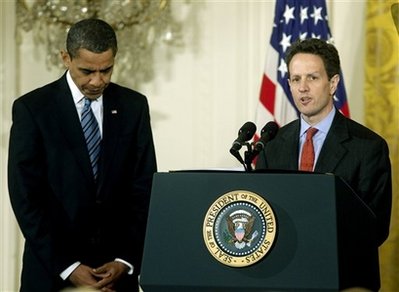The fat cats now keep almost 10% of profits for themselves, siphoning off money that could've boosted the share prices of the stocks you hold. And the worst of them may take much more
Did a gang of greedy CEOs make off with your 401(k)?
A surprising number of seasoned experts maintain they did -- or at least could be held responsible for a substantial amount of your losses.
Now, as the Obama administration attempts to rein in executive pay for companies that take tax dollars in bailouts, it's worth considering how that pay affects everyday investors trying to save for retirement. Pay's impact on profits
"CEOs look at public companies like personal ATMs," said Daniel Pedrotty, the director of the office of investment at the AFL-CIO, which represents members managing $300 billion in pension assets. "They (the companies) are machines from which they extract as much personal wealth as possible."
Pedrotty's comments may come off as union rhetoric, but Harvard law professor Lucian Bebchuk puts real dollars behind the claim. The top five officers at major U.S. public companies extracted roughly a half-trillion dollars in pay, stock and perks over the past 10 years, pocketing about 9% of average corporate profits.
That's up from about 5% of profits a decade earlier, Bebchuk said. And it doesn't include severance or retirement pay so rich that it can make a shareholder's eyes bleed. The problems:
Did a gang of greedy CEOs make off with your 401(k)?
A surprising number of seasoned experts maintain they did -- or at least could be held responsible for a substantial amount of your losses.
Now, as the Obama administration attempts to rein in executive pay for companies that take tax dollars in bailouts, it's worth considering how that pay affects everyday investors trying to save for retirement. Pay's impact on profits
"CEOs look at public companies like personal ATMs," said Daniel Pedrotty, the director of the office of investment at the AFL-CIO, which represents members managing $300 billion in pension assets. "They (the companies) are machines from which they extract as much personal wealth as possible."
Pedrotty's comments may come off as union rhetoric, but Harvard law professor Lucian Bebchuk puts real dollars behind the claim. The top five officers at major U.S. public companies extracted roughly a half-trillion dollars in pay, stock and perks over the past 10 years, pocketing about 9% of average corporate profits.
That's up from about 5% of profits a decade earlier, Bebchuk said. And it doesn't include severance or retirement pay so rich that it can make a shareholder's eyes bleed. The problems:
- Executive largesse siphons off profits that could have raised share prices. Americans invest roughly two-thirds of their 401(k) savings in stocks, which trade at a multiple of profits. A company that earns $2.20 a share might sell for $22 -- or 10 times annual profits, a fairly average multiple.
If executives took a smaller slice, profits would be higher, and it's fair to assume share prices and 401(k) totals would be higher as well, said Paul Hodgson, a senior analyst with The Corporate Library, a research firm in Maine. How much higher is impossible to say, but "it's significant," Hodgson said.
- Pay isn't tied to performance. Investors might forgive this if CEOs were being rewarded for raising profits. But that's often not how it works. Some of the most spectacular rewards of recent years went to CEOs of companies now near collapse. (See "As banks broke down, CEOs cashed in.")
With performance falling through the floor, Bebchuk is scrambling to update his pay-versus-profit figures to see just how badly shareholders are being savaged. He suspects that the percentage of profits going to CEO paychecks has soared as the bear market and recession have shredded bottom lines.
- Wild pay encourages bad behavior. Many watchdogs contend the lure of big paydays is part of what led bank and brokerage CEOs to encourage excessive risk taking, one of the causes of today's mortgage market meltdown. The resulting bear market has cost retirement savers $2 trillion and counting, The Wall Street Journal reports.
